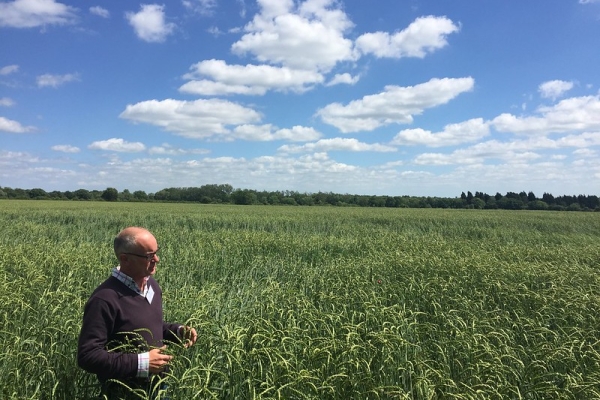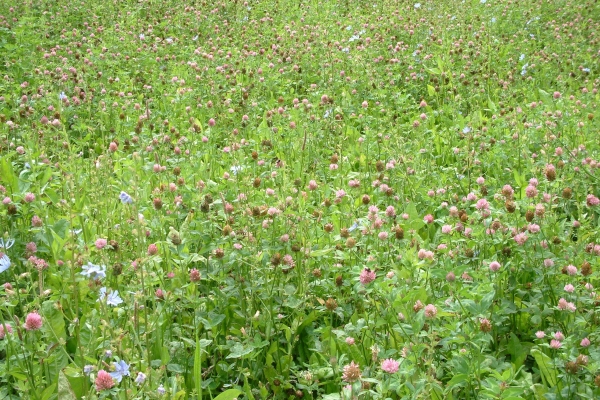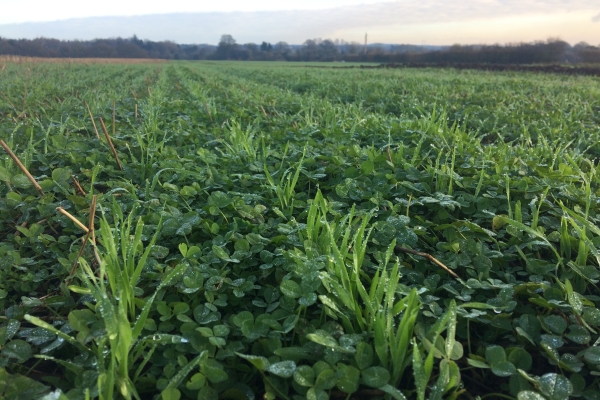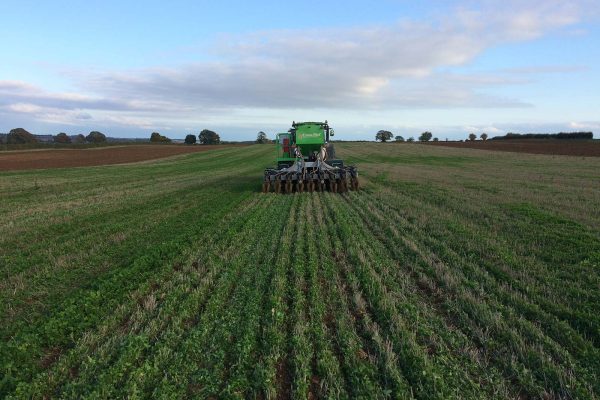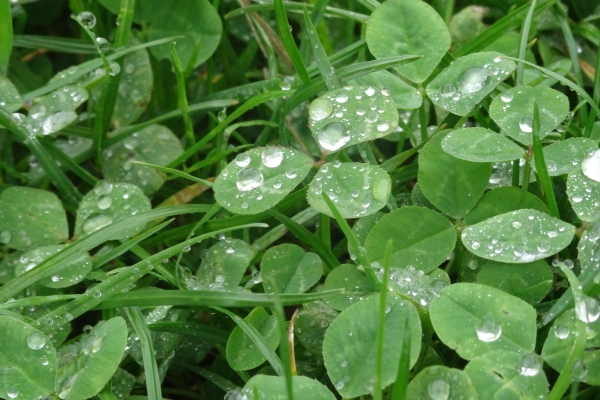The End is Nigh, The End of Nitrogen
Groundswell 2022 recording
Resource explained
With rising costs, growing limited availability and well documented impact on the environment, farmers want to reduce the use of nitrogen (N), but can the sector facilitate, adapt to, and support this move? This is footage from a discussion at Groundswell 2022 about the impacts of reduced N use and ways in which farmers are moving away from high input systems, organised by Agricology and chaired by Dr Alastair Leake (Director of Policy at the Game & Wildlife Conservation Trust) . Cambridgeshire farmer and Chair of the Nature Friendly Farming Network UK Martin Lines, Organic Research Centre’s Senior Crops Researcher Dominic Amos, and Kingsclere Estates’ Tim May take part in the lively discussion which includes touching on learnings from projects including the ‘Living Mulch’ Field Lab (funded by Innovative Farmers and Organic Arable).
Findings & recommendations
If looking to reduce a carbon footprint of growing a crop of wheat, N is the first place to start. 40% of the carbon footprint comes from the N fertiliser that goes into it.
- Martin Lines – has been using clovers and cover crops to build fertility into the soil, and been working on trying to understand where the N is, what’s available, and what the crops need. He has been using soil sampling, plant tissue testing and satellite imagery to identify the differences within the crops and where application may be needed, and is focused on building a farming system that is constantly building nutrition back into the crop.
- Tim May – put half the farm down to herbal leys after doing his Nuffield Scholarship. Mobile milking parlour helps spread the nutrition around the farm. He does a form of precision farming, looks to grow crops with higher biomass, undersow all cereals with clover, and is looking to do more grazing in cereal crops, more bale grazing, and strip till in pasture cropping. Motivation to go organic originally came from wanting to put grass back into the rotation. Being organic he is learning much more about being “a true husband of the soil.”
- Dominic Amos – living mulch systems which involve mowing the clover rather than grazing it off is a way to keep building N into the system. He has been involved in trialling wheat varieties under lower N regimes with the LiveWHEAT Defra-funded project.
- If clover does not get the nutrients it needs, it won’t form nodules, so won’t benefit your system. Strip tillage can be a great way forward.
- Black-grass loves available N – it doesn’t like the constant trickle provided from biological processes. 4 years of using herbal leys has obliterated black-grass for Tim. Martin has found sheep to really like it when grazing cover crops.
Fascinating questions from the audience include:
- Should we not infact be celebrating our use of N?
- Are any soil types more compatible with lower N inputs?
- How do we ease ourselves off N without going bankrupt?
- Problems with clover in bottoms of wheat?
- What should be the first things to consider if wanting to get animals back into your farming system?



